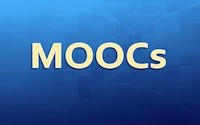
Applying collaborative cognitive load theory to computer-supported collaborative learning: towards a research agenda
Research on computer-supported collaborative learning (CSCL) has traditionally investigated how student-, group-, task-, and technological characteristics affect the processes and outcomes of collaboration. On the other hand, cognitive load theory has traditionally been used to study individual learning processes and to investigate instructional effects that are present during individual learning (e.g., expertise reversal effect). In […]










